How To Prepare For A Healthy Childbirth
If you’re expecting, you should be prepared to receive a lot of unsolicited advice—from friends, family, and even strangers in the supermarket. How do you sift through all of the opinions and determine what’s best for you and your little one? To make your job as a mom-to-be a little bit easier, we’ve done the legwork to bring you the pieces of advice that matter the most. Read on to learn what you absolutely must consider as you prepare to meet your bundle of joy.

Get Some Testing Done
As the old saying goes, “An ounce of prevention is worth a pound of cure,” and getting certain tests done before or after conceiving can help you prevent or plan for health risks further along in your pregnancy. Cervical screening, STD screening, and blood tests for anemia and genetic disorders are all helpful tests for increasing your chances of a healthy pregnancy and birth.
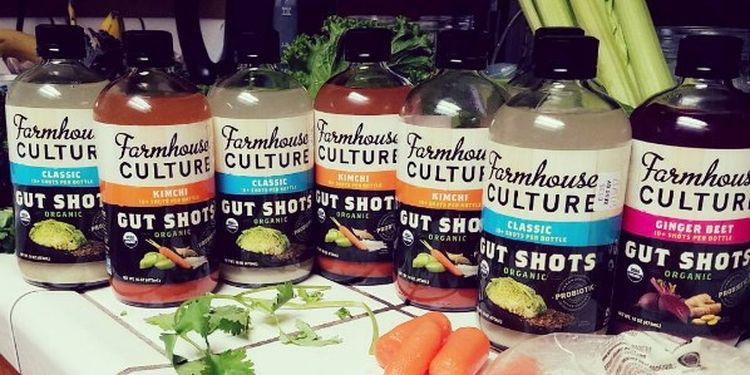
Optimize Your Gut Bacteria
The best way to help your growing child’s developing intestinal tract is to take good care of your own while baby is still in utero. Optimize your gut bacteria and promote good health for you and your child by taking probiotics and avoiding non-steroidal anti-inflammatory drugs (think aspirin and ibuprofen) during pregnancy.

Balance Your Hormones
If you’ve relied on hormonal birth control to avoid pregnancy before now, you may find that the extra estrogen has affected your hormonal balance. In fact, some women struggle getting pregnant even after going off the pill due to the effects on their hormones. Talk to your doctor if you’re worried about your hormonal health, and get your body chemistry back in balance with a nutritious diet and regular exercise.

Ditch All Processed Foods
Hollywood often depicts pregnant women with insatiable cravings for ice cream, potato chips, and other junk food. However, pregnancy is not the time to eat everything in sight. In order to protect your baby from dangerous additives, preservatives, and toxins, steer clear of highly processed and refined foods. Instead, fill your shopping cart with locally grown fruits and veggies, hormone-free meats, and whole sprouted grains.
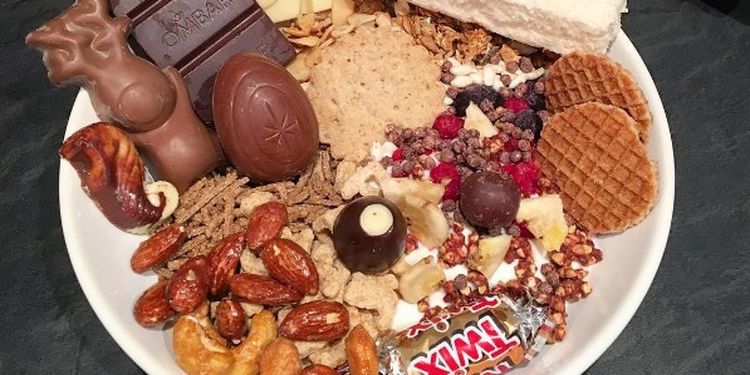
Ditch Sugar
Too much sugar is a bad idea at any stage of life, and pregnancy is no exception. Reduce your risk of scary complications such as gestational diabetes or preeclampsia (high blood pressure) by ditching the sugar whenever possible. If you’re struggling to deny your sweet tooth, opt for organic fruit instead of sugary snacks and drinks.
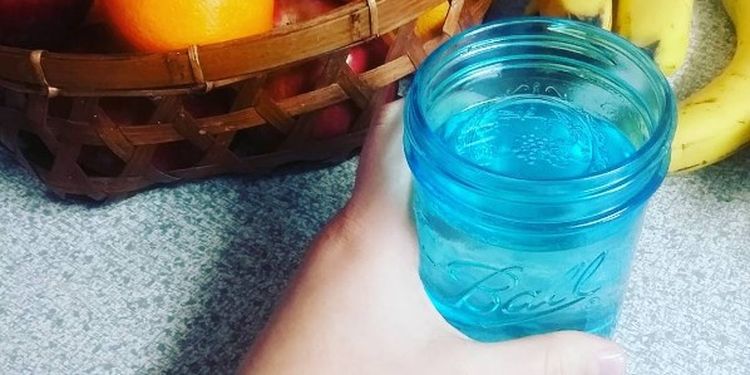
Stick to Water for Thirst
Remember that your body is made up of roughly 70% water. You need water to survive, and thirst is a sign that your body is craving water. Steer clear of sodas and sports drinks, which are filled with sugar that can cause your blood sugar to spike—not to mention the array of chemicals and artificial flavors hiding in the ingredient lists.

Avoid Caffeine
As soon as you and your partner decide to try for a baby, start preparing for a healthy pregnancy by cutting back on caffeine. If you’re in the habit of drinking more than two cups of coffee or five cans of soda each day, you could be putting yourself at a higher risk of miscarriages or difficulty conceiving. Switch to decaf coffee, and remember that water is always best.

Avoid Alcohol
Although nine months may seem like a long time to go without drinking, alcohol and pregnancy simply don’t mix. Studies show that drinking alcohol while pregnant can lead to stunted fetal development or fetal alcohol syndrome. Skip out on cocktail hour for now, and know that having a healthy baby will be worth the sacrifice.
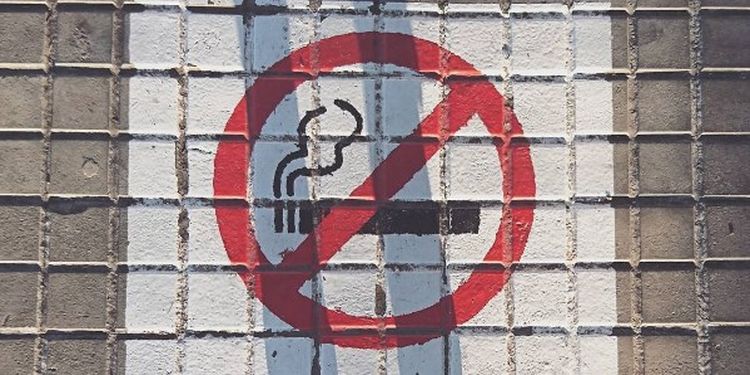
Avoid Cigarettes
Nicotine is addictive, and cigarettes can be incredibly difficult to quit. However, this can be one of the most important decisions you make to protect your baby’s health. Smoking while pregnant can increase your baby’s chances of premature birth, miscarriage, sudden infant death syndrome (SIDS), low birth weight, and breathing problems in infancy. Secondhand smoke can be also dangerous, so ask friends and family to resist the urge to smoke when they’re with you.
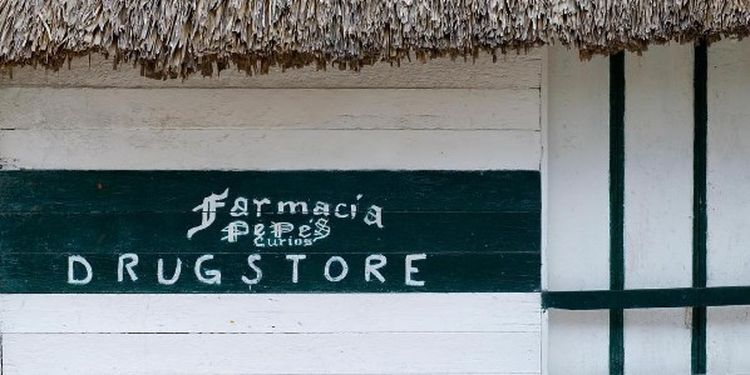
Avoid Drugs, Even the Prescription Kind
Illegal drugs are never safe for you or your baby, but you may be embarrassed to ask for help quitting once people know you’re pregnant. Talk with your doctor— she won’t be judgmental and can help support you as you strive to make healthier decisions moving forward. Certain prescriptions and over-the-counter drugs are also unsafe in pregnancy, so ask your doctor or pharmacist about continuing with any medications you’re currently taking.

Ditch Prepackaged Foods
Although prepackaged foods can be more convenient, they may come at the cost of your child’s health. Studies show that prenatal exposure to BPA, BPS, and phthalates has been positively correlated with higher BMIs and obesity in children. Each of these chemicals can be found in the plastics used to store prepackaged foods and can leach into your food when that plastic is damaged, such as in extreme heat or cold. To keep you and baby safe, cook whole foods at home whenever possible.
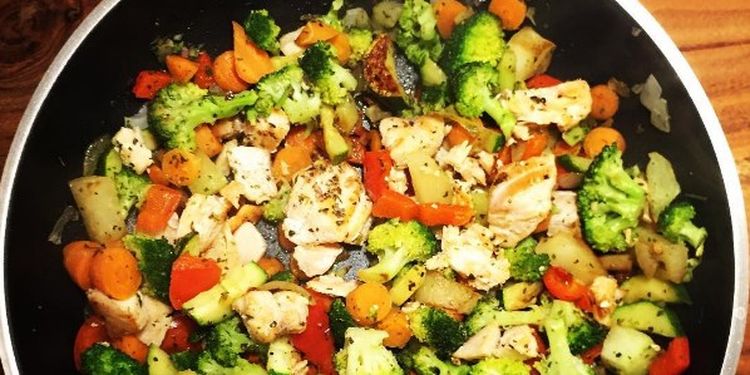
Move Your Veggies to the Middle of Your Plate
Your body is growing a baby now, and it needs a lot of vitamins and minerals to make it happen. Ensure you and baby are getting what you need by eating veggies with every meal. Making this a priority on your plate and in your day will help set you and your little one up for success.

Choose Seafood Carefully
You don’t have to steer clear of fish altogether, as seafood can be a great source of healthy fats. However, seafood is the primary culprit for exposure to a harmful neurotoxin called methyl mercury and a possible carcinogen known as PCB. Play it safe by eating seafood in moderation, and stick to those with lower contamination levels, such as mackerel, tilapia, wild salmon, and black sea bass.
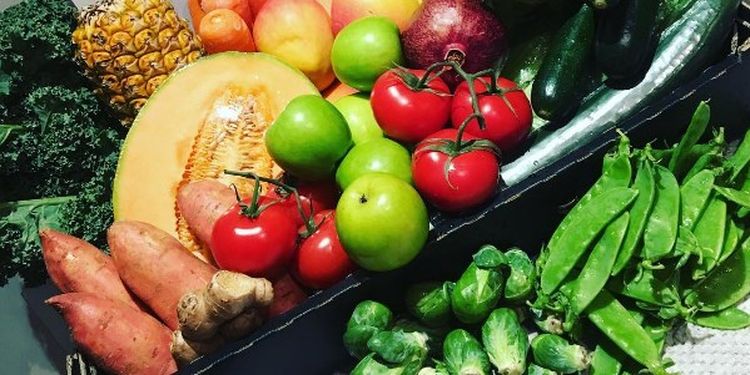
Make Sure the Dirty Dozen is Always Bought Organic
Agricultural chemicals can cause long-term health issues to babies in utero, but eating organic foods while pregnant can significantly reduce your baby’s exposure. If eating 100% organic is too expensive, at least ensure the “dirty dozen” is always organic. This list of foods is known for higher levels of pesticides when grown conventionally and currently includes strawberries, apples, nectarines, peaches, celery, grapes, cherries, spinach, tomatoes, bell peppers, cherry tomatoes, and cucumbers.
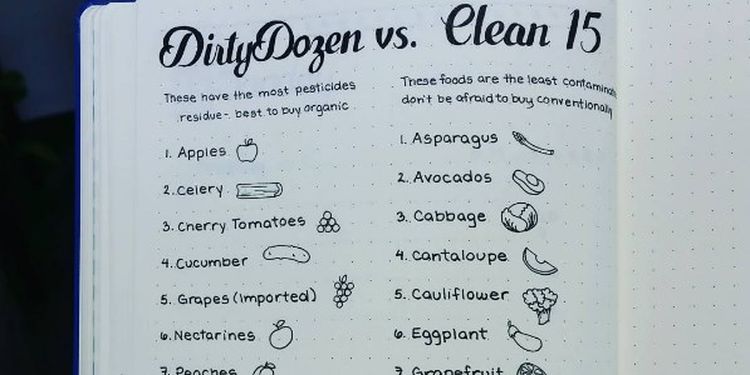
Focus on Eating the Clean 15
If organic food simply isn’t in the budget, focus on those foods that test low for pesticides and chemicals even when grown conventionally. These foods are known as the “clean 15” and currently include avocados, sweet corn, pineapples, cabbage, frozen sweet peas, onions, asparagus, mangos, papayas, kiwis, eggplants, honeydew melons, grapefruits, cantaloupes, and cauliflower.

Don’t Eat for Two
Although you may experience an increase in appetite or unusual cravings while pregnant, your caloric needs increase only slightly. Weight gain to the point of becoming overweight or obese puts you at greater risk of gestational diabetes, blood clots, high blood pressure, and miscarriage. A balanced diet of protein, high-quality fats, whole grains, and plenty of green vegetables will help support a healthy, happy pregnancy for you and your baby.
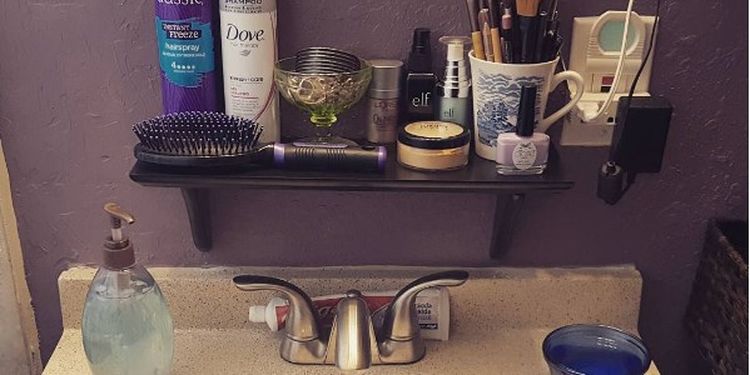
Clean Up Your Personal Care Products
You may be surprised to learn that harmful chemicals are often lurking in products you may think are protecting you and your baby, such as sunscreen or hand soap. In fact, the Environmental Working Group reports that the average woman uses 12 personal care products each day, which contain a combined 168 different ingredients on average. By making the switch to more natural products with fewer ingredients, you can reduce your baby’s exposure to toxic chemicals for a healthier pregnancy and childbirth.
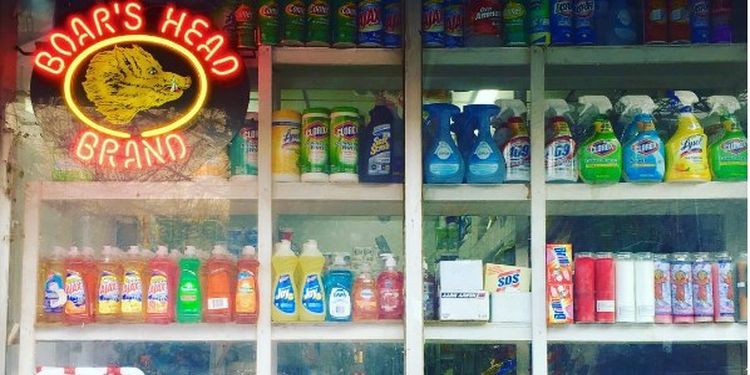
Clean Up Your Cleaning Products
Although your womb is designed to protect and nurture your baby, research shows that it doesn’t do a great job of shielding your child from dangerous toxins and chemicals. In fact, babies today are often born with over 200 environmental chemicals already in their bloodstream— many of which are found in popular household cleaning products. When you’re suddenly hit with an urge to nest and clean, opt for safe and natural cleaning products to protect your baby from harmful chemicals.

Ditch Your Nonstick Cookware
Nonstick cookware is home to PFOA, a dangerous chemical linked to a variety of health risks. Researchers have discovered that prenatal exposure to PFOA puts babies at a greater risk of high body fat and weight gain as children. Replace nonstick pots and pans— especially those that are scuffed or scratched— with stainless steel and cast iron cookware to minimize exposure to this harmful chemical.

Facilitate Stress Reduction
Preparing for motherhood can be both exciting and stressful. There are many unknowns as you wait for the day that your life will change forever. While some worrying is only natural, it’s important to reduce stress as much as possible across these nine months. Massage therapy is an effective and enjoyable way to combat stress, and it can lower your risk of depression, anxiety, leg pain, back pain, long labor, excessive fetal activity, and premature delivery.

Detoxification from Environmental Pollutants
Unfortunately, our world is full of environmental pollutants that can put you and your baby at risk of disease or health complications. This doesn’t mean you can or should become a hermit who avoids all contact with the outside world, but it does mean you can take practical steps to detox from and avoid those pollutants when possible. For example, steer clear of the dangerous chemicals found in paint by letting friends or family paint your baby’s nursery.

Exercise Intelligently, Not Excessively
Moderate exercise can promote a healthy pregnancy, childbirth, and postpartum recovery. In many cases, women can continue their pre-pregnancy exercise routine or begin a low-impact exercise program like yoga or power walking. However, pregnancy is not the time to start an intense new regimen or overdo it at the gym. If your doctor advises you to scale back, follow their advice and ask about safer activities you can enjoy that will help you stay active while also keeping you and your baby safe.

Find Your Folate
Reducing your baby’s risk of neural tube defects such as spina bifida can be as simple as remembering to take your vitamins. Whether you take 1 mg of folate (the natural form of the B vitamin) or 400 mcg of folic acid (the synthetic version), it’s important to supplement the folate naturally found in green leafy vegetables. Low maternal folate or folic acid consumption has been linked to higher risk of autism, miscarriage, and preeclampsia, so make this vitamin a part of your daily routine right away.
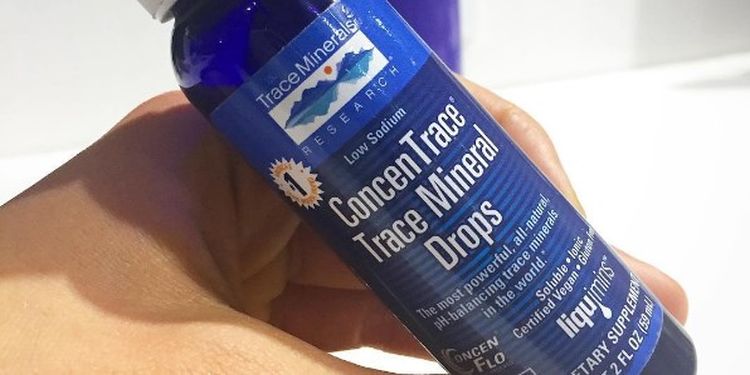
Get Your Trace Minerals
No matter how diligent you are about a healthy, balanced diet, it’s extremely difficult to avoid every possible nutritional deficiency. That’s why a prenatal vitamin is the best way to ensure you’re getting the vitamins and minerals your body needs in order to grow a healthy baby and reduce your risk of infertility, miscarriage, birth defects, cancer, and having a child with autism or severe learning disabilities. If morning sickness makes your prenatal vitamin intolerable, try switching brands or taking it later in the day with food.

Prioritize Sleep on Your To-Do List
Your to-do list will quickly grow as you prepare for your baby, but be careful not to relegate sleep to the bottom of that list. Lack of sleep can lead to an increased risk of depression and make you more likely to reach for unhealthy foods high in sugar. If you struggle to sleep through the night as your belly grows (and your bladder seems to shrink), don’t be ashamed to play a bit of “catch up” with short naps during the day. After all, sleep will be much harder to come by once your little one is here.

Consider Meditation and Spiritual Growth
Experiencing the miracle of pregnancy and childbirth may prompt you to explore your spirituality, even if that side of your life has remained dormant for some time. You may also begin considering whether you want to raise your child within a church or religious community. Consider using these nine months to prepare for parenthood and grow spiritually by attending a church or meditating regularly.

Focus on Brain Health to Avoid Depression
Society treats pregnancy as a cause for celebration, and while that may be true, 10% of women exhibit symptoms of depression during pregnancy. Untreated depression can ultimately put you and your baby at risk, especially if it causes you to make poor eating choices, lose sleep, skip doctor visits, or use harmful substances. Prioritize your mental health by seeking support, sticking to a healthy diet, exercising regularly, and taking short naps when you need them.
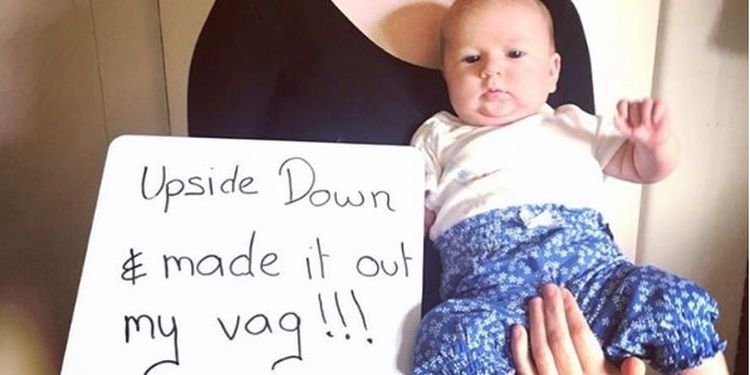
Aim for Vaginal Birth
In order to develop a strong immune system, it’s important that your baby be exposed to certain bacteria. This important exposure begins as early as birth, when your baby travels down the birth canal and through the vagina. A c-section bypasses this natural foundation for microbial colonization, so vaginal birth is the goal. Of course, the most important thing is that your baby arrives safe and sound, so be prepared to let go of this “Plan A” if your doctor deems it necessary to do so.
